STONES IN EXILE
xx
The Rolling Stones’ classic Exile On Main St. will be reissued in May with ten unheard songs from the archive. But what is it that makes this album so special in the first place?
(Simon Schreyer, redbull.com/music, April 2010)
xx
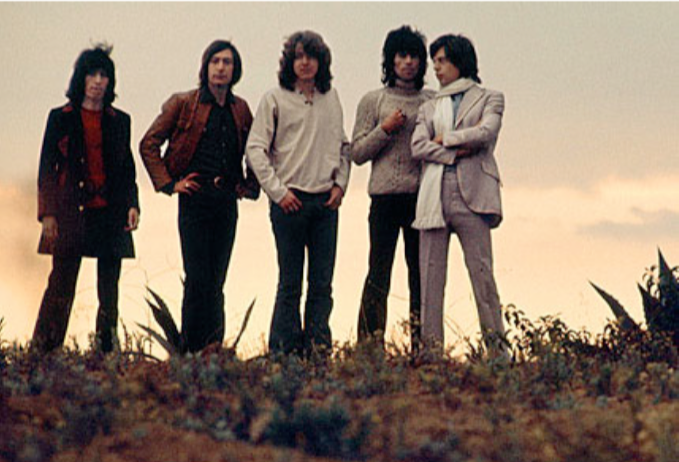
xx
In 1971, the Rolling Stones were top of the bill all over the world. They had released a string of LPs and singles, starting with Jumpin’ Jack Flash in 1968, that have been unsurpassed in their quality and intensity, neither by themselves nor by any other Rock’N’Roll band since. Plus, they had just outlived the Beatles.
They also had survived eight years of consecutive recording and touring, various run-ins with the law, the slow and painful decline of founding member Brian Jones (replaced – as if that was possible – by guitar virtuoso Mick Taylor) and the dark hour of Altamont, where a fan had been killed by the concert’s ‘security’, the Hell’s Angels. They were icons of the Sixties counterculture, mega sellers, kings of their musical realm – yet they were virtually bankrupt.
This was, on the one hand, due to their ruthless manager, who owned the copyright to the band’s back catalog. Allen Klein, who later also managed the Beatles’ Apple Records (into bankruptcy), had undoubtedly increased the Stones’ income, but the profits flowed in one direction – his own company, ABKCO. On the other hand, the band discovered that, with an earned income tax of 93%, they owed a fortune in back taxes.
xx
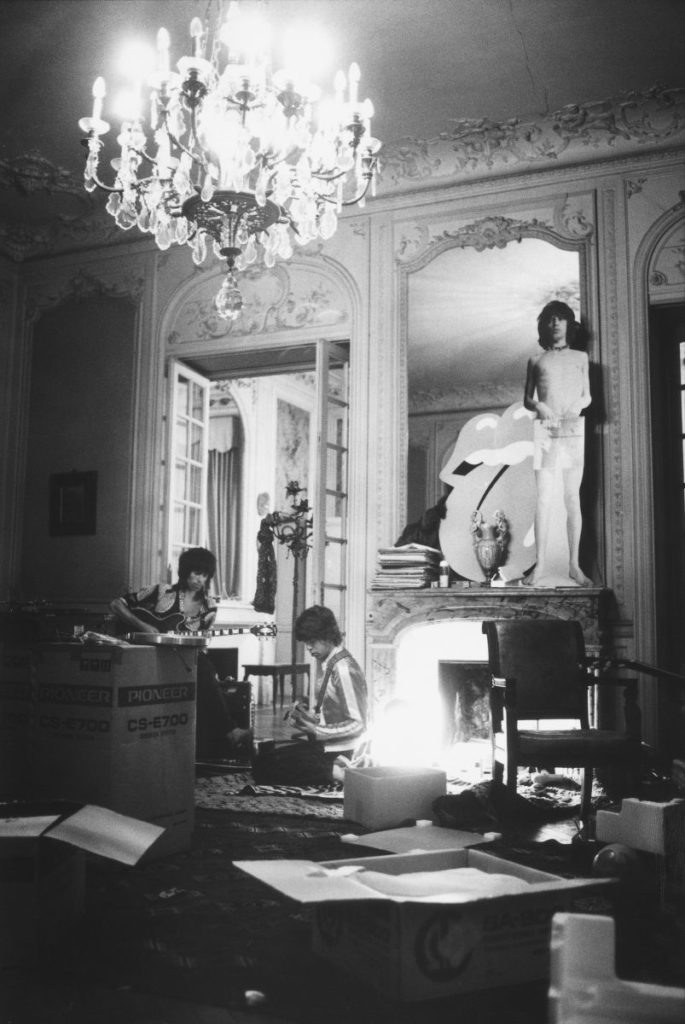
©Dominique Tarlé
xx
Following the advice of their freshly recruited financial minder, Prince Rupert zu Löwenstein, the Stones and their entire entourage set up camp in the South of France. Nellcôte, a gorgeous neoclassical villa overlooking the harbor of Villefranche-sur-Mer, became Keith Richards’ domicile and thus party HQ. A recording truck was parked in the driveway, connected to the ample but damp cellar, which served as a recording studio. Every evening, when the sinking sun cast tiaras of golden light over the bay of Villefranche, the band would gather to jam all night long.
xx
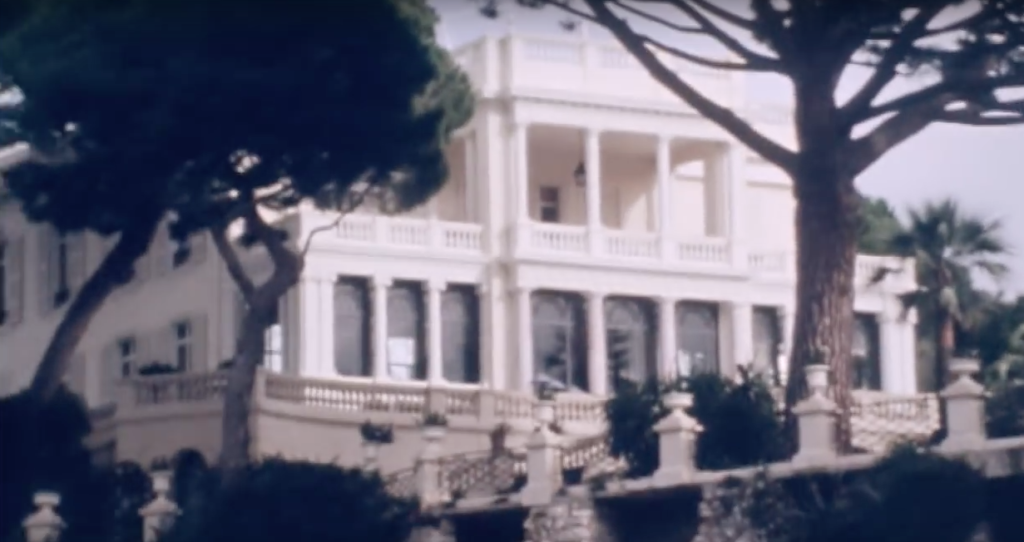
xx
Here it was that recording for the Stones’ only double album, Exile On Main St., began in June 1971. For the rest of the world, the party that was the 60s was over – contemporary writer Hunter S. Thompson was just in the process of nailing down the decade’s iconic epitaph, Fear and Loathing in Las Vegas. For the Rolling Stones, the never-ending feast of friends had just begun in earnest. That is to say, mainly for Richards, since Mick Jagger had only recently entered a high-society marriage to Bianca Pérez-Mora Macías.
During the boiling summer days, Richards raised hell in the nearby villages, showed off his unorthodox motoring skills on land and water, welcomed guests like William S. Burroughs, John Lennon, and Gram Parsons to the seaside mansion, and took care of his two-year-old kid, Marlon. All of it not exactly activities likely to propel composing and recording, especially since he and his paramour Anita Pallenberg were already deep into a daily heroin habit. Often, the armed (and loaded) guitarist had to be carefully retrieved from the second floor, having announced hours earlier that he was “just going to put Marlon to bed.”
xx
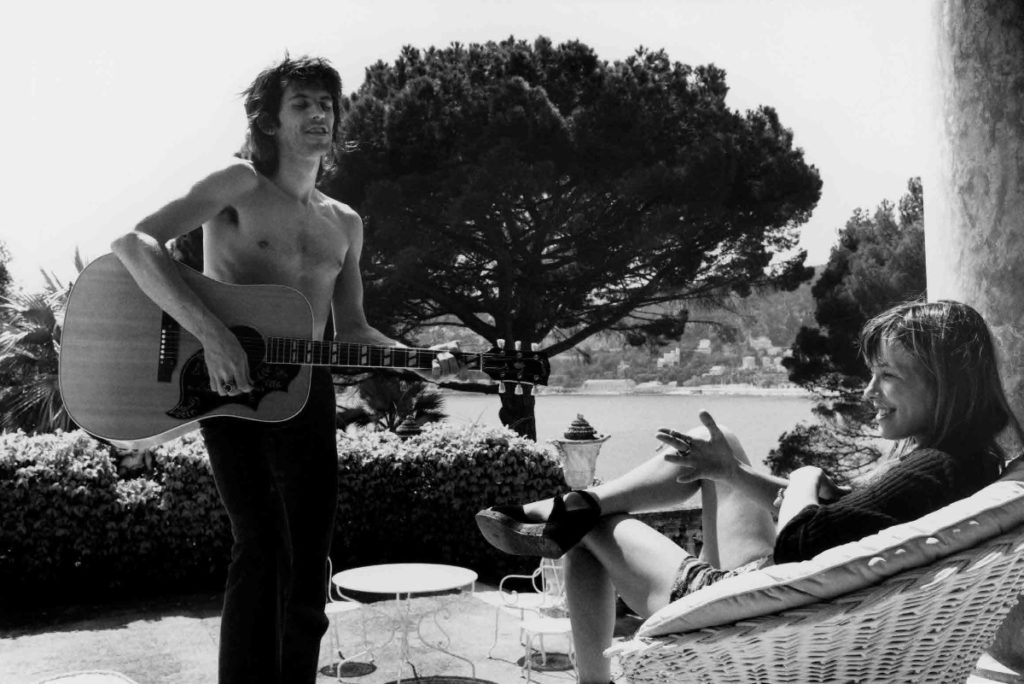
© Dominique Tarlé
xx
Still, he had his psychic antenna tuned to the ancient airwaves of the Blues, his Gibson Hummingbird acoustic being his constant escort. What the Stones, with Jim Price and the one and only Bobby Keys on horns, had caught on tape by the seminal summer’s end, they brought to L.A., to work on with producer Jimmy Miller. These recordings, mere backbones, got fleshed out with the help of an extended unit of studio musicians and choir singers into what is today considered one of the monolithic Rock’N’Roll albums of all time.
Exile also showcases the Stones in their “provençal” period and encompasses a geographical sense of the Mediterranean: pink lightning flashing the coastline on stormy evenings, the herb-scented Mistral wind, the brooding heat of midday, and the relentless sound of crickets chirping on the hillsides.
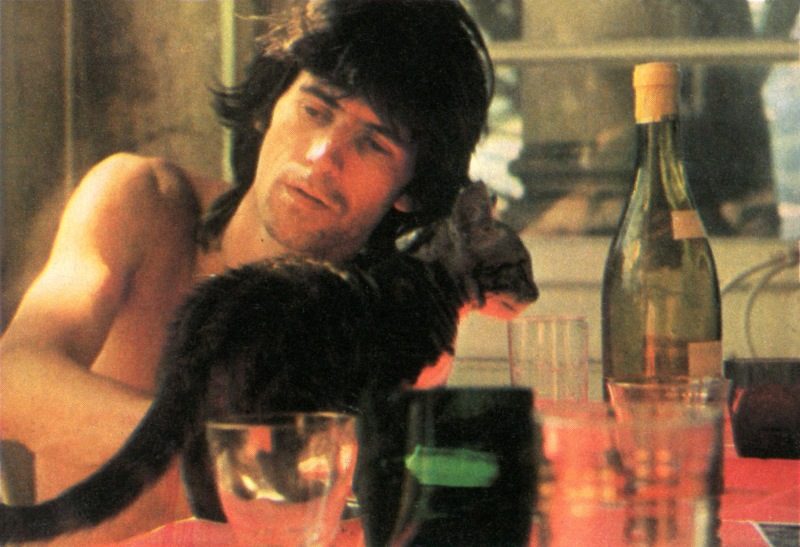
© Dominique Tarlé
The four sides of Exile, like the Stones’ music in general, really do cover the entire emotional range from break-up to make-up. The record’s narrative arc is magnificently sequenced, and the potency of its stylistic cocktail is just awe-inspiring: You get straight, explosive open-G-tuned rockers like All Down the Line, Keith Richards’ signature tune Happy, the rugged bookend Soul Survivor, and the enigmatic and atmospheric album opener Rocks Off. There’s also the frayed-at-the-fringes, high-speed craziness of Rip This Joint, maybe the fastest track the Stones have ever cut. These are all songs that fly in your face like delirious demons.
Then there are these sassy, sizzling summer songs like Shake Your Hips, Sweet Black Angel (dedicated to civil rights icon Angela Davis), the Arcadian gospel of Loving Cup (dating back to Olympic Studio sessions in 1969, and featuring, like so many other songs of that era, the celestial piano embellishments of Nicky Hopkins), and the emotionally battered but happy-go-lucky, mid-tempo swagger of Tumbling Dice. You also get the sheet-metal blues of Robert Johnson’s Stop Breaking Down (sans Richards) and the high and lonesome country twang of wintry bonfire anthems like Sweet Virginia and Torn and Frayed; not to forget the keyboard-based heartbreak ballads like Shine a Light and the woeful, watery Let It Loose, on which Jagger lets it bleed without any tongue-in-cheek smugness.

© Bob Gruen
You may call tracks like the voodoo-flavored interlude I Just Want to See His Face, or Ventilator Blues, Turd on the Run, and Casino Boogie (with its cut-up style headline lyrics and its irresistibly chunky play-out) filler material, but then again: Aren’t these recordings filled to the brim with raw emotion, inventive cleverness and the most exquisite darkness?
Apart from the first single Tumbling Dice, Exile didn’t deliver any hits that its polished predecessor Sticky Fingers had been studded with. Yet the desperately joyful feel and the precious splendor of the album were something to seep into the culture over time. By now, it has grown into a classic summer album. Its ageless ambiance, as well as its quality as a document of a certain period, place, and spirit, could only be relished in the following years. Years, in which rock music started to function as a daft commercial formula, the Stones’ musical focus drifted in and out of focus, and Richards’ passion became soaringly pharmaceutical.
xx
Clip: Rocks Off (Promotional video filmed in L.A. in 1971)
xx
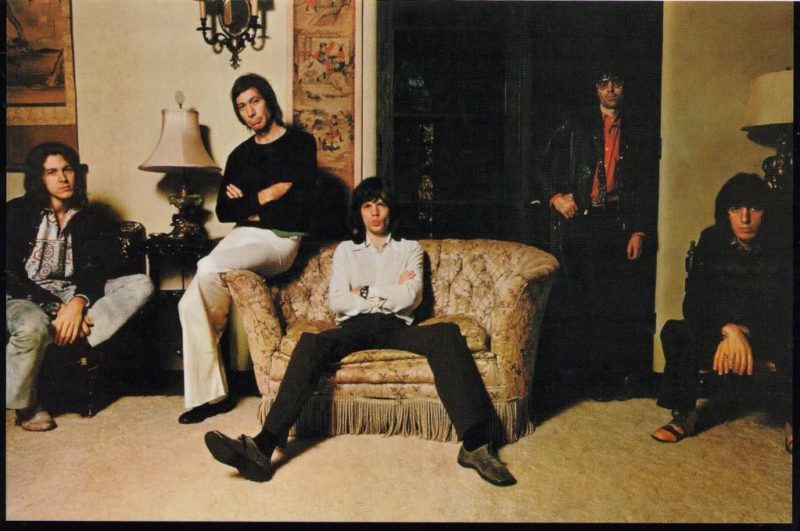
© Norman Seeff
xx
Exile’s ongoing attraction can still be discovered in its spectrum of various styles of American music, the bent of a band at the heights of its musical prowess, and the seamless and passionate interaction between its members. It is also one of the last Stones albums with a lot of backing vocals from Keith, who has often been described as the soul of the band. His vocal delivery in later years has been described as sounding like a man falling off a cliff, but on Exile his reedy harmony singing to Jagger’s lead vocals was still a vital element of the Stones then.
xx
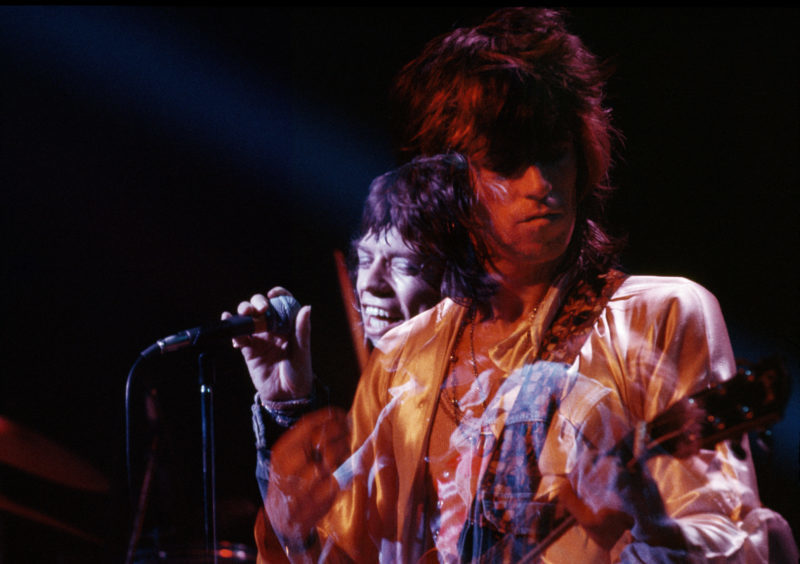
xx
“Imposing and impenetrable” was one of the descriptions the album received at its release. “Sprawling” was another one. Robert Christgau, The Village Voice‘s pope of pop criticism, described his listening experience of Exile as follows: „Once I got it, I loved it. Nothing is approaching it, track after track: There are no fillers, not Ventilator Blues, none of the minor ones – they’re all really good. And at least half of the songs are just complete dynamite… Plus, it has that very distinct sound that first, you don’t like, you think: “What is this!?”, then you get to like it, and then it’s a place to go, a place you like to visit. And there are really very few things like it in pop music, that I know of.”
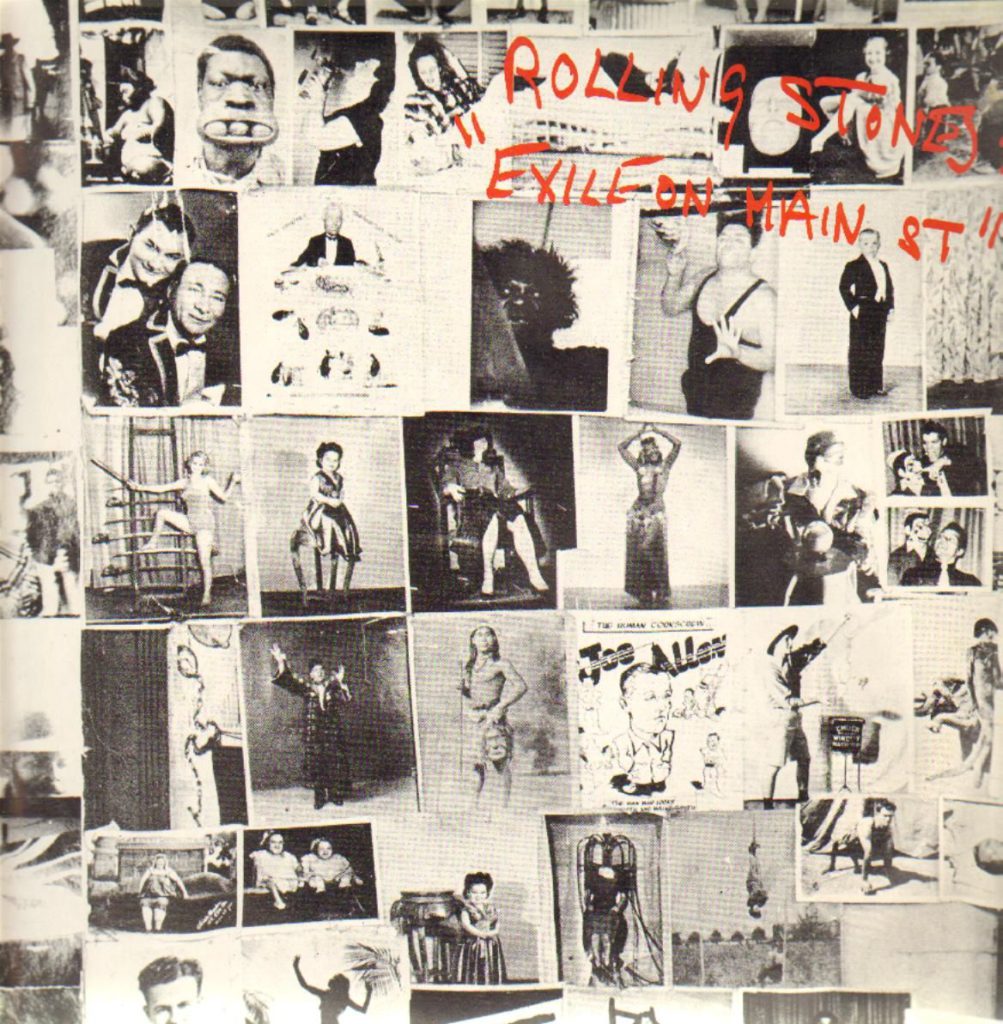
Early summer 2010 will see a reissue of Exile On Main St. and a deluxe edition (containing vinyl, a documentary called Stones In Exile, and a booklet with 50 photos from the period, mainly by Richards’ then court-photographer Dominique Tarlé) plus ten ‘new’ bonus songs that Mick Jagger and long-time producer Don Was unearthed from the archives. Among them are early versions of Loving Cup and Tumbling Dice (a fast and slinky number named Good Time Women), but also unheard concoctions and outtakes like Pass the Wine (Sophia Loren), I’m Not Signifying and a surprising soul burner called Plundered My Soul with new vocals but lyrics from 1971/72. Jagger: “I went back into the can and dug out a whole load of things, then added some percussion and some vocals.”
Richards added guitar tracks and licks on some of the bonus tracks, mostly on acoustic, but was otherwise reluctant to tinker with the past: “I really wanted to leave the songs pretty much as they were. They still had that great basement sound. I didn’t want to repaint the smile on the Mona Lisa, you know. That record has a certain vibe to it that you couldn’t replicate if you tried.”
xx
x✺
xx
xx
The deluxe reissue of Exile On Main St. will be out on May 18 on Universal. Statements by Jagger and Richards woven into a good read by David Gates can be found over on rollingstone.com.
xx
xx
Books:
Keith Richards: Life (Weidenfeld & Nicolson; 2010)
Robert Greenfield:
– Ain’t It Time We Said Goodbye (Da Capo Press, 2014)
– Exile On Main St. – A Season in Hell with the Rolling Stones (Da Capo Press, 2006)
Bill Janovitz: Exile On Main St. (33 1/3, 2005)
xx
xx
✺ ✺ ✺